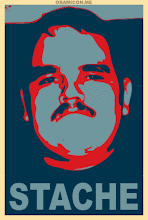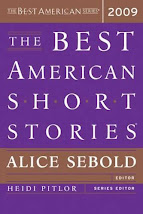Friends,
Sugar isn't Rocky. They have some similarities though. It's a good sports movie with a remarkably sympathetic lead character who you root and cheer hard for, and who also does not have a full complement of English words. It's got a sweet soul, with tinges of romance. Even has a long scene of the main character in motion that could be a metaphor for the whole flick. But Sugar isn't Rocky. It's different in all the right ways that makes it just as an accomplished sports movie as Rocky, and in some respects, better than Rocky. Bold words, I know, but let's see about this.
Sugar is a story of a pitcher nicknamed Sugar who at the age of 16 signed with the Kansas City Knights and joined up in one of the many baseball academies in the Caribbean. At 16 years old, players from places like the Dominican Republic can sign with a major league team, and are enrolled into what is essentially a boarding school for boys with potential to be professional athletes. Their lives are baseball, from the constant drills to the school, everything they do is baseball, baseball, baseball. It is also the one golden ticket out of the slums so they can provide for their family and make a better life for themselves, if possible.
Sugar captures this perfectly. Yes, a player from this kind of slum is archetypal for most by-your-bootstraps sports films. But there's an authenticity to how it is depicted in Sugar, and the movie shows you the dichotomy of the cathedral of the sports complex in the Dominican where Sugar learns his craft and the squalor of his home. It makes it so easy to understand not only why Dominican boys want to play baseball so badly, but also how disgusting it is that there is this gorgeous gated community for a baseball complex, where these young boys are trained to be ballplayer automatons with funny accents. It's like keeping hope locked in a box, but that hope is like a beautiful woman with a mustache.
Our protagonist naturally excels gets promoted to A-ball Iowa (where the home games are played in the picturesque ballpark of the River City Bandits [formerly the Swing of the Quad Cities]). Here is when the movie gets really interesting and gets into depths Rocky never touches.
There's a loneliness that is explored in this movie that's remarkably emotional. And it is a felt experience. This young boy, who only knows baseball, who doesn't speak English, dropped in the middle of Iowa and told to run out there and to pitch, boy, pitch. Sugar's loneliness and problems are explored in all areas from romantic to professional to friendship to parenthood to cultural. All of it along with the pressure of success weighing him down makes him a remarkable character. I just wanted to give him a hug and to help the guy out.
There's a couple other key depatures from the Rocky formula here. First is the realism of Sugar. You can feel the long odds in this movie much better than in that boxing flick. Because in Sugar, it's the sheer numbers of players that amaze you. Think about it. There's 30 MLB teams. That means if you go by the 25 man roster, which teams operate by most days, that's 750 total major leaguers.
Each of those 30 teams has a rookie ball, single A, double A, and triple A farm teams, each of them with about 25 players. So that's at least 100 players that each organization has that's not in the majors. And some teams have more than just 4 minor league affilates. So, at least, there are 3,000 players who are in the minor leagues right now. Just based off those numbers, you have a 25% chance of making it into the big leagues from the minors...and I know that number is too high. Now, MLB is a worldwide game. Think of all the colleges, junior colleges, high schools, and baseball academies from everywhere that feeds into those 3,000 minor league spots. I can't even begin to estimate what that number must be, but you have to be the absolute best at what you do. And stay the absolute best in order to earn your 25% chance to get into the major leagues. This movie Sugar makes you feel those long odds and the struggle of success.
Remember how Rocky gets the championship fight with Apollo Creed? Gets his name picked out of a book at random. Oh.
Another thing, Rocky redefines winning. If you've been fortunate enough to be around Terry Davis long enough he will let you know that even though Rocky loses to Apollo Creed in the movie, he wins because he went the distance. He did it, Adrian, cue the music.
Sugar has something different in mind. I don't want to spoil it because this movie is about the journey and the twists it takes. But where Sugar winds up is similar to where Rocky ends up at the end of the first movie. However, there's still a sadness there. It's not some glorious thing, and that's great and true and honest.
That's also the downside of this movie. Rocky is a movie, no doubt. Everything about it is big, American movie making that makes it thrilling. Sugar, not so much. It's moving, but not that moving because it's a quiet movie with smaller gestures and ambiguities. That's not to say I'm unhappy with Sugar because it did everything it should, it would have been a much lesser flick if it had that rousing make-your-daddy-cry finale. It's just that because Sugar is real, quiet and feels a lot like real life, you don't walk out of the theater exhilarted or moved to tears. You walk out thinking, "Hey, that was really good. So, we need milk at home or what?"
The movie did stick with me because Sugar is a sweet kid and it's a baseball movie. But, you'll notice in this write up, I don't call the character by his real name because I don't remember it. But Rocky? Rocky "The Italian Stallion" Balboa? Him, you can't forget. Sugar, you just hope to remember.
I recommend you watch it, in the theater if you can get to it, but waiting to Netflix it wouldn't be a bad choice either.
viva el mustache
June 10, 2009
The Rocky Road
![]() Responsible Party:
Bryan
at
9:41 AM
Responsible Party:
Bryan
at
9:41 AM
Subscribe to:
Post Comments (Atom)









No comments:
Post a Comment